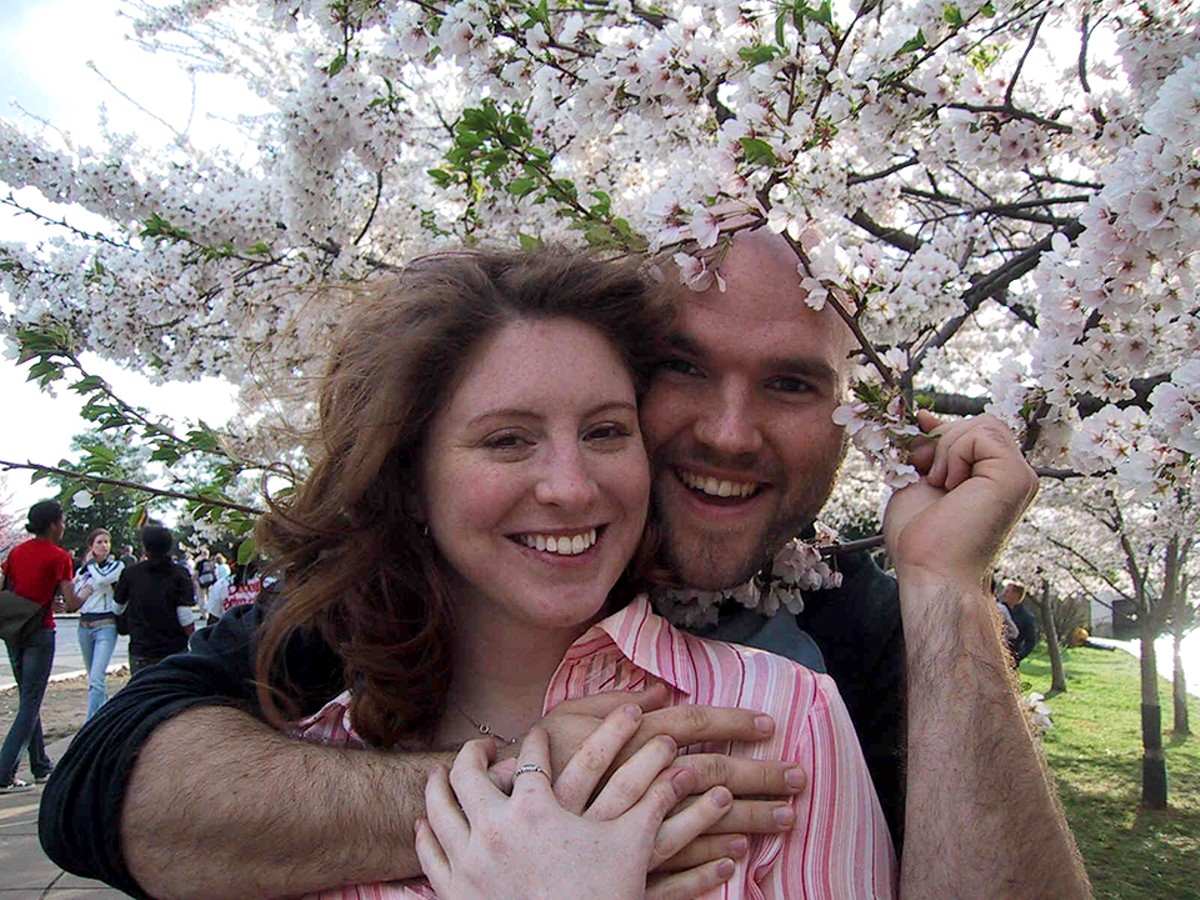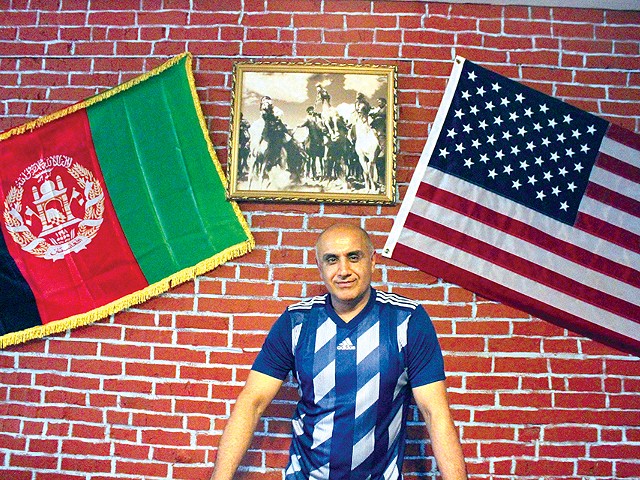It begins like every Hollywood romance. He works for a libertarian law firm. She works for a libertarian think tank. His team falls on the losing side of a massively unpopular U.S. Supreme Court decision and now needs a legislative affairs attorney to try to change state laws. Lo and behold, she's hired. And on May 6, 2007, nearly two years after that fateful Supreme Court decision, two of the few Christian libertarians living in Washington, D.C., are married.
Let's rewind this tale of chance meetings and the long-shot union of Dave Roland and Jenifer Zeigler.
ACT I, SCENE 1: The Little Pink House
Riding the upswing of the Viagra bonanza, drugmaker Pfizer Inc. was courted by the city of New London, Connecticut, to build their new headquarters there. But getting it up wouldn't be so easy. When Pfizer officials said they wanted the Fort Trumbull area, city officials used eminent domain to seize the properties from the homeowners. And Susette Kelo, who owned a little pink house along the Thames River, took them to court.
After a narrow loss in state Supreme Court, the Institute for Justice, a libertarian law firm seeking to limit government power, petitioned the U.S. Supreme Court to take Kelo's case. Finally, in the summer of 2004, the justices on the highest court in the land agreed to hear it.
ACT I, SCENE 2: The Supreme Court
Enter Dave Roland. After graduating from Vanderbilt University that summer with a law degree and a master's degree in theology, he began working for the Institute for Justice. As the "low man on the totem pole," he helped with "relatively small, quick-and-dirty" research assignments. His primary role was to watch and learn.
The legal team knew winning was a long shot. Every eminent domain case the U.S. Supreme Court had decided since 1954 had gone against property owners, Roland says. Most legal scholars wondered why they even bothered.
But after presenting arguments before the court in February 2005, Roland's colleagues thought there was a realistic chance. There's an old legal adage — "bad facts make bad law." And Roland thought the optics of a private citizen fighting to save her little pink house from a big-business land grab favored his team: These were lovely, well-kept homes being taken by the city for a private developer under the hazy justification of economic development.
"Courts are not generally supposed to be affected by things like that, but they are," he says. "And that's one of the things that as public interest attorneys we try and do — we look for the most outrageous examples of a bad policy and put it in front of a court and say, 'Seriously? This is the ultimate consequence of this policy. You can't let this happen.'"
ACT I, SCENE 3: The Conference Room
On June 23, 2005, the Supreme Court handed down its decision.
"We all gathered around a computer and hit refresh, refresh, refresh, waiting for the decision to post," Roland says.
And then came the bad news: Susette Kelo and the property owners had lost by a 5-4 vote.
After the initial "gut punch," Roland says the president of the Institute for Justice pulled the team together and resolved to continue the fight. Condemnation of the court's decision was widespread. Polls showed more than 80 percent of the public disapproved. Critics came from across the political spectrum, including the NAACP, Texas Republican John Cornyn and California Democrat Maxine Waters. Kelo and her little pink house might have lost in the courts, but the institute thought it could still win by changing laws across the country. To do that, it needed to hire a legislative affairs attorney.
"And it just so happened that Jenifer was the one we ended up with," Roland says.
ACT 2 SCENE 1: An Arlington Coffee Shop
Dave Roland and Jenifer Zeigler, who earned a master's in public administration and a law degree from the University of Missouri-Columbia, had met more than a year earlier at a dinner co-hosted by her employers at the Cato Institute and his employers at the Institute for Justice. Roland, coming off a broken engagement and "horribly overweight," ordered the ribs.
"Let's just say I was not exactly putting my best foot forward," he says with a laugh. "But we did enjoy talking to each other."
They exchanged contacts and kept in touch, but it was nothing romantic. A year later, Roland walked into an Arlington, Virginia, coffee shop where Zeigler was on a date. Zeigler, who recalls crying at her desk over the Kelo decision, told him she'd just applied for a job at his workplace.
Roland offered to help her prepare for an interview. After the interview, she took him out to dinner as a thank-you. (Roland will describe this as their first date. Zeigler disagrees.)
She got the job. They went out to celebrate. And they decided to continue seeing each other.
ACT 2 SCENE 2: Shenandoah Valley
While their relationship strengthened, eminent domain laws were weakening state by state and city by city. In the aftermath of the 2005 decision, more than 45 states have made it harder to do what New London did. (And Pfizer, despite its legal victory, never even built the headquarters.)
And then the two "little L" libertarian love birds made their home. They got married on May 6, 2007, under an arbor made from Missouri river birch at a winery in the Shenandoah Valley — a location balancing their D.C. connections and rural upbringings.
ACT 2 SCENE 3: Missouri
Despite their success in Washington, Roland and Zeigler knew they didn't want to raise a family there. And Roland, who Zeigler says was itching to leave, suggested they move to her home state of Missouri. They ended up taking jobs at the Show-Me Institute in St. Louis, hoping to start a litigation firm under its umbrella.
"A lot of people, they love their spouse, but it's also nice to have a life separate from their spouse, you know?" Roland says. Not this pair. "And so, to have the opportunity to both continue working at the same place, it really spoke to us."
Eventually, they started their own litigation firm. The Freedom Center launched in October 2010, with Zeigler as the executive director and Roland the director of litigation. Now they've collaborated on some high-profile cases even while collaborating on bringing up Viola Faye, six, and William Lysander, three, in Zeigler's hometown of Mexico, Missouri.
To Zeigler, their work is a calling, one that requires the "irrational optimism" to take cases that she knows will likely lose in the courts but hopefully get the ball rolling. (It's an irrational optimism she says she has been preparing for her whole life as a Mizzou sports fan.)
"You have to have a degree of delusion to do the kind of work we do," she says. "But you know what? You keep doing it and doing it, and one of these days you're going to win one, and that's gonna get the law changed."
And while Roland still believes that the Institute for Justice winning the case would have been better for the entire country, a difficult, fascinating truth remains.
"If we had won the case, we wouldn't have needed a legislative affairs attorney," he says with a chuckle. "So, literally, if we had won that case, I probably would not have married my wife."






